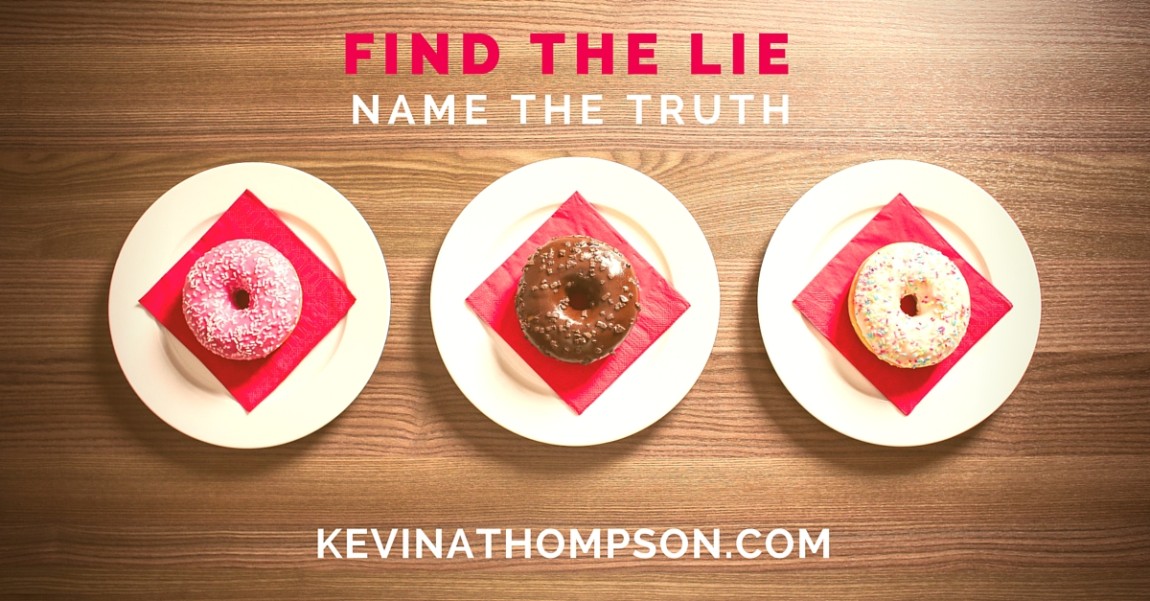How are you preparing your kids to make wise decisions in a world full of false advertising?
Most parents aren’t.
Despite that our children are bombarded with hundreds of messages every single day, a majority of parents never consider how to assist their children to interpret what they are seeing and make good decisions in response (and often despite) those messages. (See: Stop Breaking the Ninth Commandment on Facebook)
Not all advertising is bad. There is good advertising and bad advertising.
Good advertising truthfully communicates the positive elements of what it is selling making the audience aware of its potential.
Bad advertising falsely associates a product with outcomes which it cannot deliver.
Contrast two hamburger commercials.
The first focuses on its product and location. The commercial explains the ingredients they use and the friendliness of their service. The message is clear–our hamburger will taste good and you will have a good time eating in our restaurant. It is good advertising.
The second focuses on everything but the product. A thinly clad female is sensuously eating the burger while sitting on a hot-rod as an announcer tries to describe the burger like it is an element of foreplay. The message is clear–eat our hamburger and you might meet a girl like this. It is bad advertising.
While it doesn’t take much discernment to understand that a hamburger will not improve our sex life (it will likely hinder it–higher cholesterol isn’t good for the heart), most bad advertising is more subtle.
Unless our kids are able to discern the false messages from the true ones, they run the risk of making horrific decisions. They will purchase items expecting an outcome it cannot provide and when it doesn’t deliver, they will assume something is wrong with them. Ironically this self-doubt causes them to be more likely to buy another product expecting it to bring a satisfaction it cannot deliver.
What is a parent to do? (See: Conversation–The Key Skill of a Good Parent)
Here is a simple game parents can play with children:
When they view a commercial teach them to find the lie and name the truth.
While not every commercial lies, many do. We must train our kids to expect false information, not be surprised by it. They should search for it and then replace its message with the truth.
A truck commercial advertises how much money you can save if you buy this weekend. The lie is that you are saving money. You don’t save money by spending money. The truth could be that the truck is a better value at a lower price. The real truth is that a new truck will not dramatically change anyone’s life.
The advertisement for a new pair of blue jeans is set in a busy nightclub. The lie is that a new pair of jeans will be your ticket into a fun community which will bring relationships and life satisfaction. The truth is the jeans might be comfortable or look good on you. The greater truth is that relationships and life satisfaction are not determined by a pair of jeans.
The online dating website bills itself as the perfect way to meet a mate. The lie is that a website can erase the complexities of modern relationships. The truth is that it might be a good place to meet someone, but no relationship is easy.
While each commercial might be different, the lies they tell are often the same. They promise something they can’t deliver:
- Happiness (See: Money Can Make You Happy)
- Satisfaction
- Sex
- Power
- Wealth
Advertisers target these outcomes because they are something we all want. Our desire makes us susceptible to a false message. Yet products don’t bring these outcomes. Wealth and power are likely outcomes we shouldn’t even desire. Sex (at least life-long meaningful sex) is most often a byproduct of a healthy marriage. Happiness and satisfaction are internal realities which we offer to the world far more than something the world offers to us.
Advertising is a part of modern life. When done well, we are informed about what products and opportunities can provide for us. When done poorly, we are deceived into thinking an object can give us something it could never give.
The more adept we are at identifying the lies being told to us, the better chance we have of making wise choices. (See: A Christian Response to an Atheist Billboard)
Parents should train their children to find the lie in advertising and to replace that lie with the truth.
We should do so, not just to train our kids, but to train ourselves. Unless we are looking for the lies, we are probably falling for them.




6 Responses to Find the Lie, Name the Truth